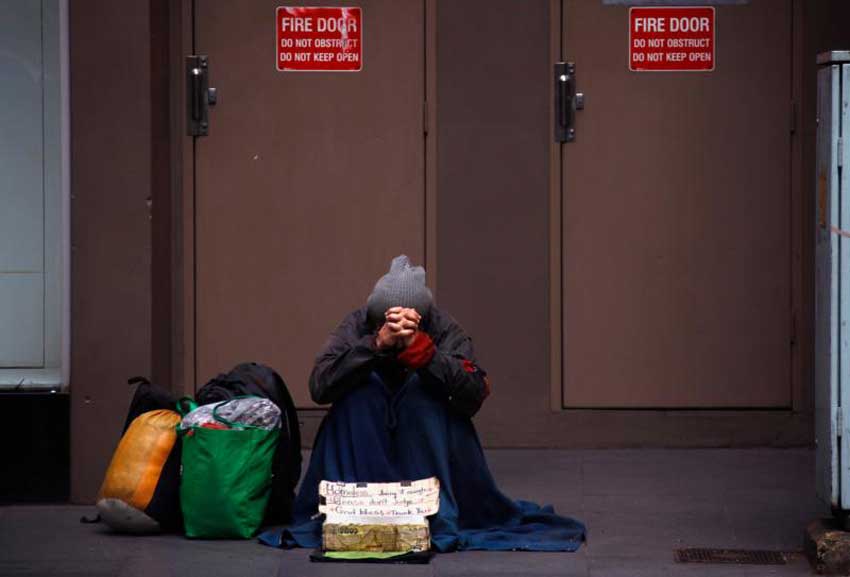
Everyone benefits from small luxuries occasionally
If you’re not living in dire poverty, you probably found yourself having recourse to little treats throughout this pandemic, to cheer yourself and your family up.
Maybe you splurged on a tasty but extravagant snack or dessert, or something to brighten up the house, or a new book or movie or game you’ve been wanting. Little treats can’t fix the problem, but they can make it more tolerable.
It’s not that they’re hugely important in themselves, but they help because they remind us that, even though so much of our day is clouded and burdened with problems and anxiety, there is still good in the world, still sweetness, still calm, still satisfaction.
Little treats also remind us that we’re worth putting a little bit of effort into, and that our current state of misery and distress is not normal and not desirable, but should be remedied.
It’s very common for financially comfortable people to have a conscious or unconscious policy of denying even the smallest of treats to the poor.
Well, my friends. Whether there’s a pandemic on or not, why not give little treats to the poor? Why not offer them small, unnecessary consolations, just because they’re poor, and that sucks, and it will cheer them up to have a little treat?
It’s very common for financially comfortable people to have a conscious or unconscious policy of denying even the smallest of treats to the poor. I think some folks don’t even realise they harbour these thoughts, but they believe deep down that it’s okay for comfortable people to give themselves little treats as a consolation when times are hard, but it’s somehow not okay for poor people to enjoy the same. That there’s something unhealthy or unhelpful or unseemly about the poor receiving any charity beyond the bare necessities.
Sometimes the reason behind this is to stretch a donation dollar. If you can donate one high quality item or five adequate items, maybe it really is better to help five people than one. But I’ve seen this principle play out to absurd degrees. People will donate only the very cheapest brand of ramen to the soup kitchen, as if five or ten cents a portion will make any meaningful difference in the giver’s budget.

If people donate socks or underwear to a shelter, they’ll choose the cheapest, plainest varieties they can, as if the poor belong to some other species that cannot care about colour or pattern or style. They will drop off a Christmas present for a toy drive, making sure it’s something modest and discreet, nothing extravagant, just in case . . . something. In case a poor person gets a little taste of what it’s like not to subsist on the bare minimum.
Sometimes people will draw a very straight line between action and intention: They say that if we make it too comfortable to be poor, then poor people will lose any motivation to do the work it takes to climb out of poverty.
Sometimes this is true. But you always have to ask yourself: Isn’t this also true for rich people? Isn’t it true that sometimes things happen to rich people that make it easy for them to continue in their current less-than-ideal state? What’s the difference?
It sucks to get constant reminders that you are poor
The truth is, if hard work were enough to pull people out of poverty — and if laziness were enough to topple rich people out of wealth — then the world would look very different from how it does. VERY DIFFERENT. There are many complex reasons poverty exists; but often enough, it’s just the grim grind of poverty itself that keeps people poor.
Being poor is exhausting. Getting constant reminders that you’re undesirable is numbing. Believe it or not, it’s not inspiring to learn over and over and over again that the thing you want — even the tiny little thing, the fresh muffin, the sock without a hole, the kind of pencil that doesn’t break when you sharpen it — is the thing you can’t have, and can’t give to someone you love. Ceaseless deprivation makes you humiliated, discouraged, anxious, depressed. It’s hard to think clearly when your life is entirely lacking the little things that make existence bearable.
Help make someone feel properly human for a day
And many of us learned this for the first time first hand, during the pandemic. It wasn’t inspiring for us to be constantly deprived and stressed out. It didn’t motivate and challenge us to reinvent ourselves into entirely new people. It just sucked.
This is what it’s like being poor: It just sucks. It’s just exhausting. It’s discouraging. And it would be nice to have a little treat from time to time, as a reminder that there’s still good in the world, and that despite being poor, they’re still worthy of getting something good, even if it doesn’t make the larger problem go away.
My theories about why we treat poor people the way we do could fill a book. Today, I’ll just say: Next time you have the chance, give a poor person a treat. If you’re buying food for the food pantry, bulk up on staples, but throw in some cookies and snacks. If you’re helping someone pay their electric bill, add in some extra for a birthday present, too. If you’re donating a toy, choose something that will knock some kid’s socks off.
It won’t make poverty go away, but you’d be surprised at how much a little treat can help. It might make someone who’s really suffering feel more human for a day, and that’s no small thing.
Related:
